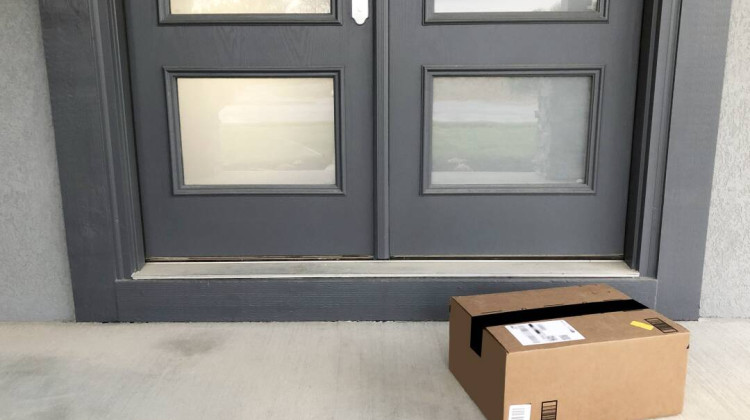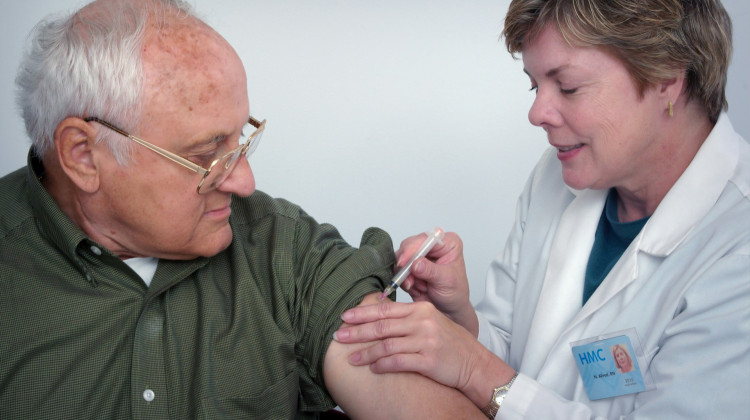
The Milk Bank, an Indianapolis-based non-profit, provides donated breast milk to babies in the neonatal intensive care unit and babies with medical needs who benefit from human milk. The Milk Bank Advancement Director Jenna Streit said the non-profit helped around 100 families who couldn’t find formula during the shortage, which began in May after supply chain issues and formula recalls.
The Milk Bank/SubmittedThe Indiana Department of Health and The Milk Bank have partnered to host donated breast milk drives across the state as the nationwide infant formula shortage continues.
The Milk Bank, an Indianapolis-based non-profit, provides donated breast milk to babies in the neonatal intensive care unit and babies with medical needs who benefit from human milk. The Milk Bank Advancement Director Jenna Streit said the non-profit helped around 100 families who couldn’t find formula during the shortage, which began in May after supply chain issues and formula recalls.
“We've been working together in recent months to help solve this formula shortage,” Streit said. “[But] we know that The Milk Bank can't be the only solution to the formula shortage.”
Other solutions, she said, include more support for breastfeeding and addressing supply chain issues causing the shortage in infant formula.
Formula is less scarce these days. In Indiana, the in-stock figure – which measures the percentage of expected demand suppliers have available to sell – was 72 percent for baby formula powder the week ending July 31, up from a low of 67 percent the week ending July 10, according to data from IRI Worldwide. This follows nationwide trends.
Still, more breast milk donations are needed to fill the gap. In the last month, The Milk Bank has had “an 89 percent surge in demand and more than 200 percent increase in medical relief requests,” according to a news release. Streit said The Milk Bank recognized the need for increasing the amount of donated milk and the number of donors.
After registering online, new breast milk donors can complete a blood test, the final step in the process, at one of the five scheduled “Every Ounce Counts” milk drives. Milk donations will also be collected during the events.
Streit said the blood tests are an important safety requirement for new donors.
“Because milk received at The Milk Bank can go to the most fragile infants in the NICU, we need to ensure that milk is completely safe,” Streit said. “We need to know what kind of medications a person is taking, we need to ensure that they don't have any sort of transmissible disease. And that's what the blood test confirms for us.”
Milk drives will be held:
- Aug. 13 in Monroe County at IU Health Bloomington Hospital
- Aug. 23 in Lake County at Food Bank of Northwest Indiana
- Sept. 8 in Clark County at Clark Memorial Health
- Sept. (date to be determined) in Allen County at Dupont Hospital
- Oct. 7 in Marion County at Gleaners Food Bank of Indiana
Another goal of the upcoming events is to increase awareness about breastfeeding and the benefits of human milk for babies.
While the benefits of breast milk are well-established, there are possible safety risks when using donor milk that has not been adequately screened and properly stored.
The U.S. Food and Drug Administration recommends parents consult a health care provider before feeding a baby human milk from a source other than the baby’s mother. The agency advises against the use of breast milk acquired directly from other people or through the internet, due to potential risks.
Donated breast milk at The Milk Bank is screened and pasteurized to ensure that it is safe for babies.
Contact reporter Darian Benson at dbenson@wfyi.org. Follow on Twitter: @HelloImDarian
 DONATE
DONATE






 Support WFYI. We can't do it without you.
Support WFYI. We can't do it without you.